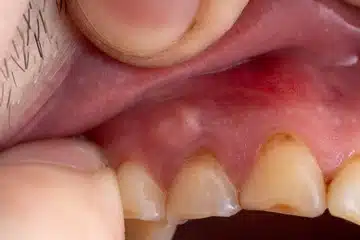Toothache occurs due to a cavity, leading to infection in the tooth. Luckily, there is an antibiotic for an infected tooth that cures tooth infections. The main reason for this is poor oral hygiene, also tooth decay can occur as a gene related issue. Since the mouth is full of oral bacteria, any hole in the tooth enamel can generate severe complications for the root and supporting bones around it.
Medical professionals often recommend difference antibiotic for an infected tooth to eliminate the harmful bacteria that is causing the tooth infections. If you experience persistent pain or you notice swelling around your gum, you should endeavor to see your dentist as soon as possible.
Penicillin for an infected tooth
According to the drug website, penicillin is the most prescribed antibiotic for an infected tooth. The role of Penicillin antibiotic is to hold the production of bacterial walls as they reproduce, as a result, all the bacteria will die or weaken. After a day or two, you should feel relieved from gum swelling, pain, and fever symptoms. If you have asthma, kidney disease or a history of allergies should not use this antibiotic before you see a health provider. If your condition is critical or the whole thing gets worse don't hesitate to see your family dental care immediately.
Are you looking for the best options of antibiotics for a toothache? Here is our recommendation!
Clindamycin
Clindamycin is the second antibiotic for an infected tooth. An alternative to penicillin for treating tooth infections. Also, it cures other bacteria present in the lungs and internal organs including the skin, according to MedicineNet. It belongs to the family of lincomycin group of antibiotics and produces in liquid forms and tablets form. It is often prescribed for three to four times daily depending on the severity of the tooth infection and the length of treatment may vary, although it usually does not extend past a week. Mayo Clinic says that if you develop nausea, vomiting, joint pain or thrush after taking this antibiotic, you should see a dental professional immediately.

Amoxicillin and Clavulanate
Amoxicillin is also part of the group of the penicillin, and clavulanate drugs belong to the beta-lactamase inhibitors family. The combination of these two drugs compounds, known by many brand names, eliminates all the harmful bacteria and prevents its growth by killing them, according to MayoClinic.com. As an oral antibiotic, this drug helps to decrease the growth of drug-resistant bacteria while remaining effective against harmful oral bacteria, according to the Merck website. Recently, a statement was made by the U.S. National Institutes of Health that the antibiotic is safe to use. Although, you may experience side effects such as nausea and vomiting.
REFERENCES & RESOURCES

Isreal olabanji a dental assistant and public health professionals and has years of experience in assisting the dentist with all sorts of dental issues.
We regularly post timely and trustworthy medical information and news on Fitness, Dental care, Recipes, Child health, obstetrics, and more.
The content is intended to augment, not replace, information provided by your clinician. It is not intended nor implied to be a substitute for professional medical advice. Reading this information does not create or replace a doctor-patient relationship or consultation. If required, please contact your doctor or other health care provider to assist you to interpret any of this information, or in applying the information to your individual needs.





